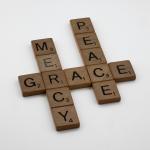My father learned about sex — the theory, that is, not the practice — from reading Irv Shulman’s Amboy Dukes. Published in 1947, two years before the old man was bar mitzvah, it billed itself as “The Toughest Novel Ever Written About Juvenile Delinquent Gangs.” Several years later, my mother learned the facts of life through more official channels — namely, the nuns of St. Anthony’s grammar school and their lectures on the martyrdom of Maria Goretti. The contrast to the Amboy Dukes is more apparent than real: both involved adolescent sociopaths and jury-rigged weapons. Could it have been a shared ghoulishness, acquired early on, that brought my folks together? If so, I must have picked it up, or else I wouldn’t find myself speculating on what props were used in my conception.
It’ll be interesting to see whether sex ed pioneer Al Vernacchio’s students will have any hangups left to pass on to their kids. An article in this week’s New York Times describes how Vernacchio, who teaches at Friends’ Central School in Philadelphia, wins students’ confidence with an “utter lack of self-consciousness about sexual matters,” fielding questions about everything from orgasms to orgies. Rather than skirt the subject of pleasure, he considers it his mission to teach sex “in all its glory and complications.” Vernacchio denies contributing to the delinquency of minors:
“As much as I say, ‘This is how orgasms work, and they’re really cool,’ I say there’s a lot of work to being in a relationship and having sex. I don’t think I have the power to make sex sound so enticing that kids are going to break through their self-esteem issues or body stuff or parental pressures or whatever to just go do it.” And anyway, Vernacchio went on, “I don’t necessarily see the decision to become sexually active when you’re 17 as an unhealthy one.” His goal is for young people to know their own minds, be clear about what they do and don’t want and use their self-knowledge to make choices.
Most parents can rest assured that Vernacchio won’t be lecturing their kids anytime soon. Friends’ Central is a private school, run by those draft-dodging pantywaists, the Quakers. But some sex educators are lobbying to reinvent public-school curricula in such a way as will give prominence to the question of pleasure. Last November, Paul Johannides, author of The Guide to Getting it On, advised guests at a sex educators’ conference: “Porn is the model for today’s middle-school and high-school students…And none of us is offering an alternative that’s even remotely appealing.”
The idea of middle-aged teachers trying to compete with porn stars on their own turf sounds, well…jarring, at best. Their goal is relevance. In Johannides’ words: “We’re worrying about which bathrooms transgender students should use while teens are worrying whether they should shave all the way or leave a landing strip…They’re worrying if someone special will find them sexually attractive, whether they will be able to do it as well as porn, whether others have the same kind of sexual feelings they do.”
As goals go, “relevance” is pretty hard to define objectively, and for that reason pretty easy to overlook if missed — more so, anyway, than preventing teen pregnancy and STDs. Nobody quoted in the Times article predicts with any confidence that if kids pay more attention in class because the teacher responds frankly and non-judgmentally to their questions about X, then they’ll take him more seriously when he lectures them on the dangers of Y. The worst-case scenario that justifies the pleasure-based curricula, that porn will teach kids bad lovemaking habits that they’ll need a lifetime to unlearn, sounds a bit by the way, not to mention farfetched. Judging by the titles in Barnes & Noble alone, continuing adult sex ed is a growing industry. Why strangle it, as it were, in its crib?
In horse races with clearly defined markers, abstinence-only programs have shown some evidence of effectiveness. According to a National Institute of Mental Health study published last year, a sample of 662 African-American middle-schoolers, aged 10 to 15, was divided into four groups. Members of the group that learned sex ed through a two-year program stressing abstinence reported having had sex at significantly lower rates than any of the others. Researchers obtained their data through students’ self-reporting, so the possibility remains that abstinence-only programs simply teach kids to be sneaks. Still, if Florence King was right when she wrote that hypocrisy is a synonym for civilization, that might not be a bad start.











